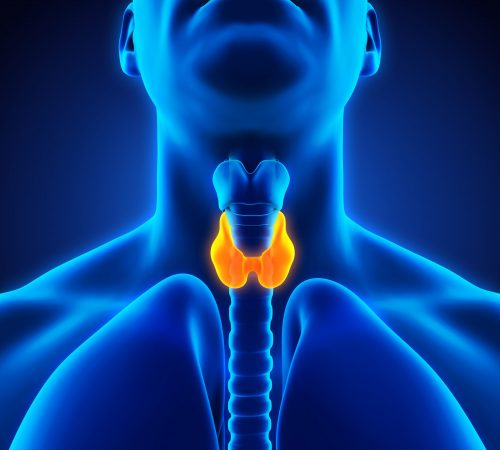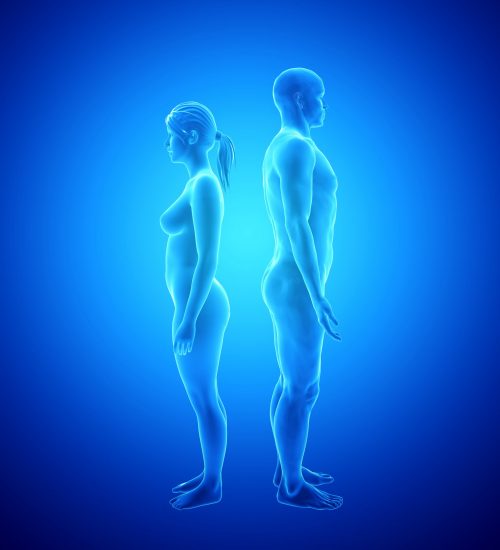“I’ve Stopped My Antidepressants Doc” – How TRT is Changing Men’s Lives

In the UK in 2018, there were 6,507 deaths by suicide. Overall, men accounted for three-quarters of these deaths 1. Could Testosterone Replacement Therapy (TRT) be the answer?
A deliberately inflammatory question perhaps, but I feel that it’s a very important part of the jigsaw. I am the founder and Medical Director of The Men’s Health Clinic, a CQC-registered private medical clinic that specialises in the diagnosis and management of men with Testosterone Deficiency. Our clinic is based in Dorset and attracts people from all over the world.
“We pride ourselves in offering a personalised approach to patient care, ALL patients must be seen in person for their New Patient TRT Consultations and yearly thereafter, there are NO exceptions.”
We adhere to the British Society for Sexual Medicine guidance for managing Testosterone Deficiency with Testosterone Replacement Therapy (TRT). However, we have a more progressive approach to TRT with the concurrent use of Human Chorionic Gonadotropin (HCG) alongside testosterone, with the emphasis being on maintaining natural function and supplementing with testosterone to reverse the negative symptoms of low testosterone. I feel that TRT should be considered as Hormone Replacement Therapy, not simply TRT.
“TRT is more than simply normalising testosterone levels, it’s about maintaining normal physiological processes for long-term physical and psychological well-being”.
The commonest presenting symptoms of low testosterone include fatigue, an element of low mood, anxiety and/or depersonalisation, brain fog and low libido.
“Men are simply seeking a semblance of normality”
It is not uncommon for men to have already presented to their GP with these troublesome symptoms and been offered antidepressants and the ‘little blue pill’ for their flagging libido. Most have quite rightly resisted the diagnosis of depression and sought a cause, not just a solution. There is often a “eureka moment” and a justified sense of relief when they input their symptoms into Google and find that there is a possible cause for their negative symptoms. This is when their journey begins.
Unfortunately, it is not a simple case of starting hormonal therapy if you believe you have a testosterone deficiency. In order to establish a diagnosis, you need comprehensive diagnostic blood tests to not only confirm the diagnosis and exclude possible contraindications, but to also look for and address any potential reversible causes for low testosterone.
“I don’t want to put men on TRT unless I feel it’s in their best interests. TRT is a commitment in both time and money and the journey to hormonal balance is involved.”
The aim of TRT is to reverse the negative symptoms associated with having low testosterone, it is also to make sure that any change is both positive and sustainable. I believe that there are serious shortcomings in the current NHS model. In my professional opinion, the NHS does not fully appreciate the importance of biological individuality and questions why hormone levels are not titrated according to effect.
“How can you have a one-size-fits-all model when we are all biologically unique?”
There is a clear link between low testosterone and depression 2. This does not mean that testosterone is the cure for depression, it just means it’s an important contributory factor. I wrote the blog TRT – The New Male Antidepressant. The title may have been purposefully chosen to spark attention, however I believe that the content is both thoughtful and insightful. I am confident that normalisation of male androgen levels can improve mental well-being.
In 2017 we launched a closed Facebook group ‘TRT in the UK’, which was the first of its kind in the UK. The aim of the group was to increase awareness and understanding around Testosterone Deficiency and TRT, with a clear emphasis on mental well-being. The group has rapidly grown with over 1700 members currently. Lydia and I are delighted to have witnessed the evolution of a “heart-warmingly supportive network”, with men often reaching out to their peers if they are in crisis. Despite the positive community spirit, the focus continues to be on education and the promotion of safe and effective care.
Members of ‘TRT in the UK’ were recently asked the question “What effect has normalising your testosterone levels had on your mental well-being?” The answers were as follows:
Positive – 97%
No Effect – 3%
Negative – 0%
TRT is available on the NHS. Unfortunately, the care that the NHS delivers appears not to meet the standard expected by their patients. Members of TRT in the UK were also asked, “Rate your NHS Testosterone Deficiency experience”. They answered as follows:
Atrocious – 64%
Poor – 27.7%
Average – 2.5%
Good – 6%
I fully understand the frustration that patients often feel. Having worked within the NHS for over 20 years, I appreciate the position that the NHS is currently in, the organisation is both under-financed and under-resourced. I feel that there is toxic-overcrowding and that the current fire-fighting model does not have sufficient time and resources to adopt a more preventative model. I also believe that the NHS is abused by everyone, from the overly entitled patient to the politician who indiscriminately uses the NHS as a political pawn to surreptitiously manipulate the general public. There is discord everywhere.
Alarmingly, antidepressant prescriptions are on the rise. Data from NHS Digital show that 70.9 million prescriptions for antidepressants were handed out in 2018, compared with 36 million in 2008. All medications have potential side-effects. I am concerned with the relationship between the use of Selective Serotonin Re-uptake Inhibitors (SSRIs), which are the first line treatment choice for depressive disorders, and low testosterone 3. I recognise that SSRIs have their place in the management of depression, but I also believe that they are over-prescribed and “dished out like smarties”, with patients often being inadequately counselled about their potential negative effects. Patients appear to develop a dependence, withdrawal effects when stopping medication are commonplace 4,5 and they are often frustrated by the ineffectiveness of antidepressant therapy 6. In a 2018 study involving 2096 respondents, 59% expressed lack of effectiveness and 20% expressed having issues with side effects 6.
Depression is complex, it has a mix of psychological, socio-economic, environmental and physical elements. GPs have recognised that 10 minute consultation times are insufficient to adequately manage their patients 7. The Royal College of GPs state that standard 10-minute appointments should be a “thing of the past” by 2030, with a recommendation for a minimum of 15 minutes per patient 8.
Is 15 minutes enough time to explore the ideas, concerns and expectations of the patient, perform a physical examination, organise appropriate investigations, agree a management plan, check understanding and initiate treatment if necessary?
“To affect a sustainable change, you must look for, and address causation.”
Our New Patient TRT Consultations at The Men’s Health Clinic are either 60 or 90 minutes in length. I feel that this gives me enough time to explore my patient’s ideas, concerns and expectations, before discussing their suitability for treatment. I place a firm emphasis is placed on mental well-being, as it is integral to all aspects of care. The first consultation is often a cathartic experience because the patient has finally found someone who will listen to and take their concerns seriously.
The media and many NHS Endocrinologists have a negative opinion towards TRT. This is either due to the association of testosterone with performance enhancement in the gym or in sports, or they attempt to trivialise the condition using terms such as ‘The Andropause’ or ‘The Manopause’, which are both factually inaccurate and flippant. It is evident that low testosterone can be a very debilitating medical condition which can have a profound effect on both physical and psychological health.
“I am always delighted for the patient when they proudly announce – “I’ve stopped my antidepressants Doc!””
So much so, The Men’s Health Clinic launched the Healthy Body Healthy Mind #ChooseTRT campaign in Spring 2019 after two of their younger patients admitted that they were close to suicide prior to TRT. There is a My Story – #ChooseTRT page on our website for men to share their stories in the hope that this will encourage others to do the same. My own story is at the top of the page.
‘I’m not embarrassed or ashamed, to affect a positive change to the collective we must start with the individual.’
Our focus is on adopting a holistic approach to patient care, with a very deliberate emphasis on mental well-being. Testosterone Deficiency can have a very negative impact on both physical and psychological well-being. Testosterone Replacement Therapy can have a positive effect if handled correctly by an experienced clinician who understands the nuances of best practice.
“TRT is not a cure-all, I still get tired and experience highs and lows – like a normal person, but that’s all I wanted to be.” – John, 29
Whilst all journeys are unique from a subjective perspective, they all share similarities. It’s only through sharing can we affect a positive change to the collective. Daniel has kindly agreed to share his story below in the hope of helping others. Thank you Daniel.
Dr Robert Stevens MBChB MRCGP Dip.FIPT
My TRT Journey – By Dan Malcangi
“I’ve been battling complex PTSD for seven years due to my service in the Army. I had started Testosterone Replacement Therapy through the NHS around 2017 and to say it was a disaster is an understatement. By the time I finally met Dr Stevens and The Men’s Health Clinic in 2019 I was at the bottom of the barrel. I can now say that TRT has saved my life!
During my treatment with the NHS, I had tried all three options that they had available – Tostran gel, Sustanon and then Nebido. My treatment was never monitored or very scarcely checked by a GP. It was all left to a nurse from my GP surgery and there was no knowledge of what I needed. Towards the end of my TRT journey with the NHS, I was no better off than when I started.
Cue disaster! After a routine blood test my testosterone levels came back at 44nmol/l, which was above the upper limit of the NHS reference range. The Nurse along with the Surgery Manager immediately made the decision to stop my TRT altogether, not to drop the dose or adjust the injection frequency; but to completely stop it. They called me in for a meeting to discuss why they had made this decision without a GP being present. Their primary concern appeared to be “We need to know if you’re going to do any harm to yourself as we know one of the side effects of extremely low testosterone is suicidal thoughts”. Given that I’d already attempted suicide twice due to my PTSD, I thought this would have been treated a little more sensitively than it was.
After treatment had been stopped, I had a visit to A&E due to extreme fatigue. When they tested my testosterone level in hospital it came back at 120nmol/l! My level before treatment was stopped was 44nmol/l and a week later the hospital found it to be 120nmol/l, I was then effectively accused of steroid abuse. After speaking with Dr Stevens, I then understood that that this elevated level was because I’d been inappropriately prescribed 1000mg/4ml of Nebido every 3 weeks, rather than 10-12 weeks as per manufacturers guidelines. I find it necessary to add all the above to highlight the severity in the lack of knowledge of TRT in the NHS which could, in my case, have ultimately led to a suicidal case.
I got to see Dr Stevens after a discussion with a friend who was a current patient at his clinic. It was obviously the best move I could make and the travel from Manchester was well worth it. I was immediately made to feel at ease with Dr Stevens and knew from the outset that no stone would be left unturned in my care and ultimately felt that he had my care at the forefront of his interest. I’ve now been a patient of Dr Stevens for over a year and the difference in my wellbeing is unrecognisable. The protocol he has me on has me functioning like a very younger me. I now have stable levels, not wildly fluctuating peaks and troughs.
I have strength and stamina, I feel much more alert, I feel like I’m actually present in my own body and mind, and that is something I haven’t felt for a very long time, but more importantly I’m happy again. I want to get out of bed in the morning and my little girl has a dad who can actually function. It’s safe to say Dr Stevens has saved my life. This isn’t said lightly, and I mean that 100%. I won’t ever be over my complex PTSD, my diagnosis is permanent. However, I must stress, the care and treatment Dr Stevens is offering is an integral part of me being the best I can be.
The Men’s Health Clinic should be the first choice for anything to do with hormone optimisation and whole wellbeing. I now recommend it to anybody in my position. I can’t thank The Men’s Health Clinic and Dr Stevens enough and know my future is very secure and looked after in his care.
Thank you.
References
- https://www.ons.gov.uk/peoplepopulationandcommunity/birthsdeathsandmarriages/deaths/bulletins/suicidesintheunitedkingdom/2018registrations
- https://jamanetwork.com/journals/jamapsychiatry/article-abstract/2712976?fbclid=IwAR3RNqRRCPRAZH_CxnKTp-A1MEN-0-pb627aLCyzvRjWQ2BPPtIFEBuNPT8
- https://www.ncbi.nlm.nih.gov/m/pubmed/28179152/?fbclid=IwAR3WNx2MtBeRdeYNwbA35s8kBn9h92yVZxZgqoH-b6aw55mhMdbM6PzyDhA
- https://www.ncbi.nlm.nih.gov/pubmed/29873165
- https://www.ncbi.nlm.nih.gov/pmc/articles/PMC4722507
- https://www.ncbi.nlm.nih.gov/pmc/articles/PMC5800100
- https://www.gponline.com/half-gp-consultations-adults-impossible-10-minutes/article/1459288
- https://www.rcgp.org.uk/about-us/news/2019/may/15-minute-minimum-consultations-continuity-of-care.aspx


